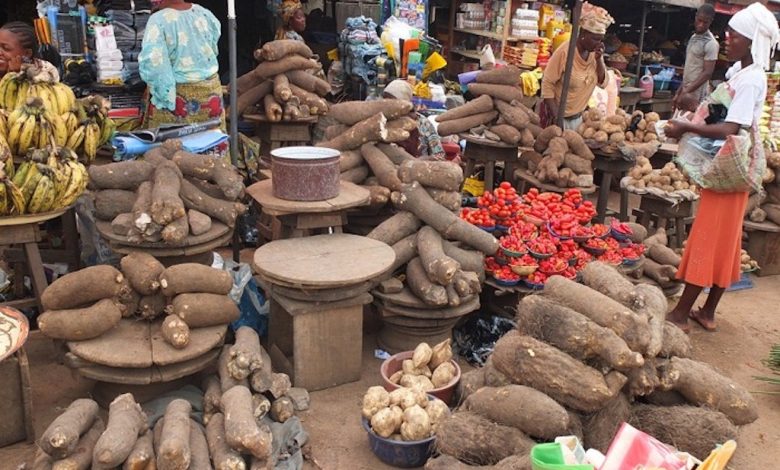
The United Nations has issued a warning that 82 million Nigerians, representing about 64% of the country’s population, may experience severe food insecurity by 2030.
The National Bureau of Statistics recently reported that Nigeria’s food inflation rate reached a historic high of 40.66% in May 2024, surpassing the previous month’s record of 40.53%.
The spike is the largest year-on-year increase in food prices since records began in 1996.
Historically, Nigeria’s food inflation has averaged 13.42%, with the lowest point recorded at -17.50% in January 2000.
In 2023, the Food and Agriculture Organisation (FAO) warned that 2.6 million Nigerians in Borno, Sokoto, Zamfara states, and the Federal Capital Territory (FCT) could face a food crisis between June and August 2024.
A government-led Cadre Harmonisé analysis released in March 2024 indicated that approximately 4.8 million people in Borno, Adamawa, and Yobe states were experiencing severe food insecurity, the highest level in seven years.
The current situation has prompted warnings from various quarters.
Organized Labour has expressed concern over rising food prices and fuel scarcity. Olisa Agbakoba, a Senior Advocate of Nigeria, has also warned of a potential hunger riot, urging swift government action.
Tobi Awolope, an agricultural economist from the Centre for Agricultural Development and Sustainable Environment at the Federal University of Agriculture, Abeokuta, attributed the high hunger rate in Nigeria to climate change.
Awolope noted that smallholder farmers, who play a crucial role in food production, have low adaptive capacity to cope with climate change effects, such as irregular rainfall patterns and lack of irrigation.
On his part, Dr. Yinusu Alidu, the National Secretary of the All Farmers Association of Nigeria, stated that the UN report reflects the real situation in the country, urging the government to prevent a food crisis by encouraging irrigation farming systems and creating dams.
He criticized the government’s lackadaisical approach to farming and called for immediate action to support farmers.
Mr Adeyemi Adejare, President of Integrated Agricultural Services, South-West, described the UN’s report as an indication of the government’s failure to support agriculture.
He called for aggressive farming, genuine government support, and a shift to mechanized farming to avert the predicted food insecurity.
